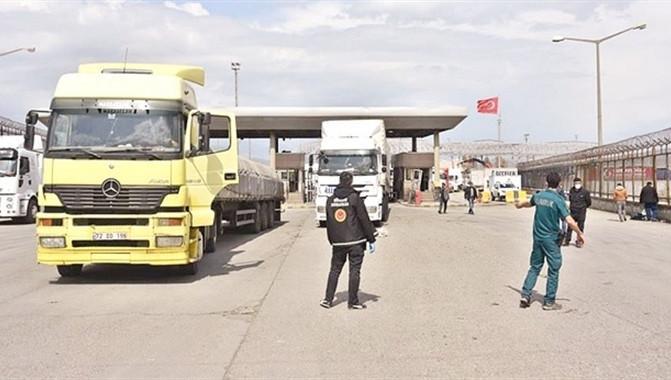
The “contactless trade” method launched amid the coronavirus pandemic is continuing successfully, Trade Minister Ruhsar Pekcan has said, adding that the number of commercial vehicles passing through customs has increased since March, when the method was launched.
A total of 55,208 trucks have entered Turkey through Habur border gate with Iraq since March, Pekcan said on April 25, adding that 50,386 trucks have left.
With this method, a driver, wearing gloves and a mask, on one side of the border parks a trailer at the buffer zone between Turkey’s Habur gate and Iraq’s Ibrahim Khalil border crossing and returns. Then, another driver from the other side of the border pulls the trailer after disinfection assisted by health officials.
The number of entries and exits through the Habur border gate has reached almost pre-pandemic numbers, Pekcan said, praising the efforts of logistics groups and customs officials.
Railroad transportation has gained prominence in cross-border trade during the period of strict measures to curb the spread of the novel coronavirus pandemic, according to the Turkish trade minister.
Turkey continued cross-border trade with Iran via Kapıköy railroad station after the border gates were closed at the beginning of March, a measure that halted the crossing of more than 260 loaded trucks every day from Turkey into Iran.
“On this rail line, 289 freight cars were transporting goods on average monthly in the January-February period. As part of the contactless trade scheme, 781 freight cars departed from Kapıköy [for Iran] in March. The figure more than doubled to 1,633 as of April 24. The volume of transported goods increased from 27,384 tons to 41,913 tons in this period of time,” said Pekcan.
On top of that, the railroad connecting the eastern province of Kars to the Georgian and Azerbaijani capitals, Tbilisi and Baku, was put in service. The volume of goods carried on this line increased from 4,219 tons in January to 10,194 tons between April 1 and 24, she said.
The Turkish government also aims to increase capacity on the railroad connecting Istanbul’s Halkalı district with Bulgaria’s second largest city Plovdiv from 35,800 freight cars to 50,000.